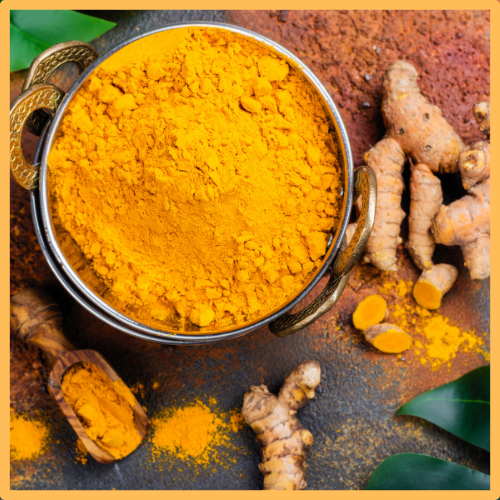Discover the key differences between turmeric supplements and whole turmeric. Learn which option offers better health benefits and how to choose the right one for your needs.
Turmeric has gained attention worldwide for its incredible health benefits, but there’s an ongoing debate: should you take turmeric supplements or stick with whole turmeric? Both options offer health advantages, but which one is better suited for your needs? Let’s look at the pros and cons of each so you can decide what’s best for you.

What is Whole Turmeric?
Whole turmeric is the natural form of the turmeric root, commonly used in cooking, teas, and traditional remedies. The bright yellow spice contains curcumin, the active compound responsible for most of turmeric’s health benefits, such as reducing inflammation and improving digestion.
Many people prefer consuming whole turmeric because it is a more natural way to benefit from the spice. In addition, whole turmeric provides other compounds found in the plant that supplements may not. For instance, it’s often added to dishes like curries, used in golden milk, or brewed in teas.

What are Turmeric Supplements?
Turmeric supplements offer a more concentrated dose of curcumin, often in the form of capsules, powders, or tablets. Since curcumin makes up only a small percentage of whole turmeric, supplements aim to deliver more curcumin in a convenient format. Some supplements are also combined with ingredients like black pepper (piperine) to enhance curcumin absorption.
Many people choose supplements for their convenience, especially if they are trying to boost their intake of curcumin for its anti-inflammatory effects.

Benefits of Whole Turmeric vs. Supplements
Both whole turmeric and supplements provide health benefits, but there are differences worth considering.
Whole Turmeric: Offers the full spectrum of compounds in turmeric, which could have additional health effects. It is great for those who prefer natural, whole foods in their diet.
Turmeric Supplements: Provide a concentrated dose of curcumin, offering a more potent anti-inflammatory and antioxidant effect. They are convenient and often formulated for better absorption.
Which is Better for Health: Turmeric Supplements or Whole Turmeric?
The answer depends on your personal needs. If you are looking for a natural and traditional way to consume turmeric, then whole turmeric might be your best option. It provides a range of compounds in their natural form, along with other nutrients.
On the other hand, if you want to target inflammation or other health conditions more aggressively, turmeric supplements may be the better choice due to their high concentration of curcumin. Supplements are especially helpful if you find it hard to include enough turmeric in your daily meals.
FAQs
What is the difference between turmeric and curcumin?
Turmeric is the spice, while curcumin is the active ingredient found in turmeric. Curcumin provides the health benefits associated with turmeric, but it only makes up a small percentage of the whole root.
Can you take turmeric supplements every day?
Yes, most people can take turmeric supplements daily, but it’s important to consult your doctor, especially if you have any underlying health conditions.
Are there side effects of turmeric?
Turmeric is generally safe, but some people may experience stomach upset or allergic reactions, especially in high doses from supplements.
Is whole turmeric more effective than supplements?
Whole turmeric offers a broad range of natural compounds, but it contains less curcumin compared to supplements. If you’re looking for a higher dose of curcumin for specific health benefits like reducing inflammation, supplements might be more effective.
Can turmeric supplements replace whole turmeric in cooking?
No, turmeric supplements are designed for concentrated health benefits and don’t provide the flavor or texture needed for cooking. Whole turmeric is best for culinary uses, while supplements are ideal for targeted health purposes.
Conclusion
Both turmeric supplements and whole turmeric have their advantages, and choosing between them depends on your health goals. Whole turmeric is great for those who prefer natural, unprocessed foods, while supplements provide a more concentrated dose of curcumin, which may be helpful for specific health concerns.
Whether you choose supplements or whole turmeric, both options can offer excellent health benefits. Try adding turmeric to your diet or look into quality supplements to see how this powerful spice can improve your overall wellness.